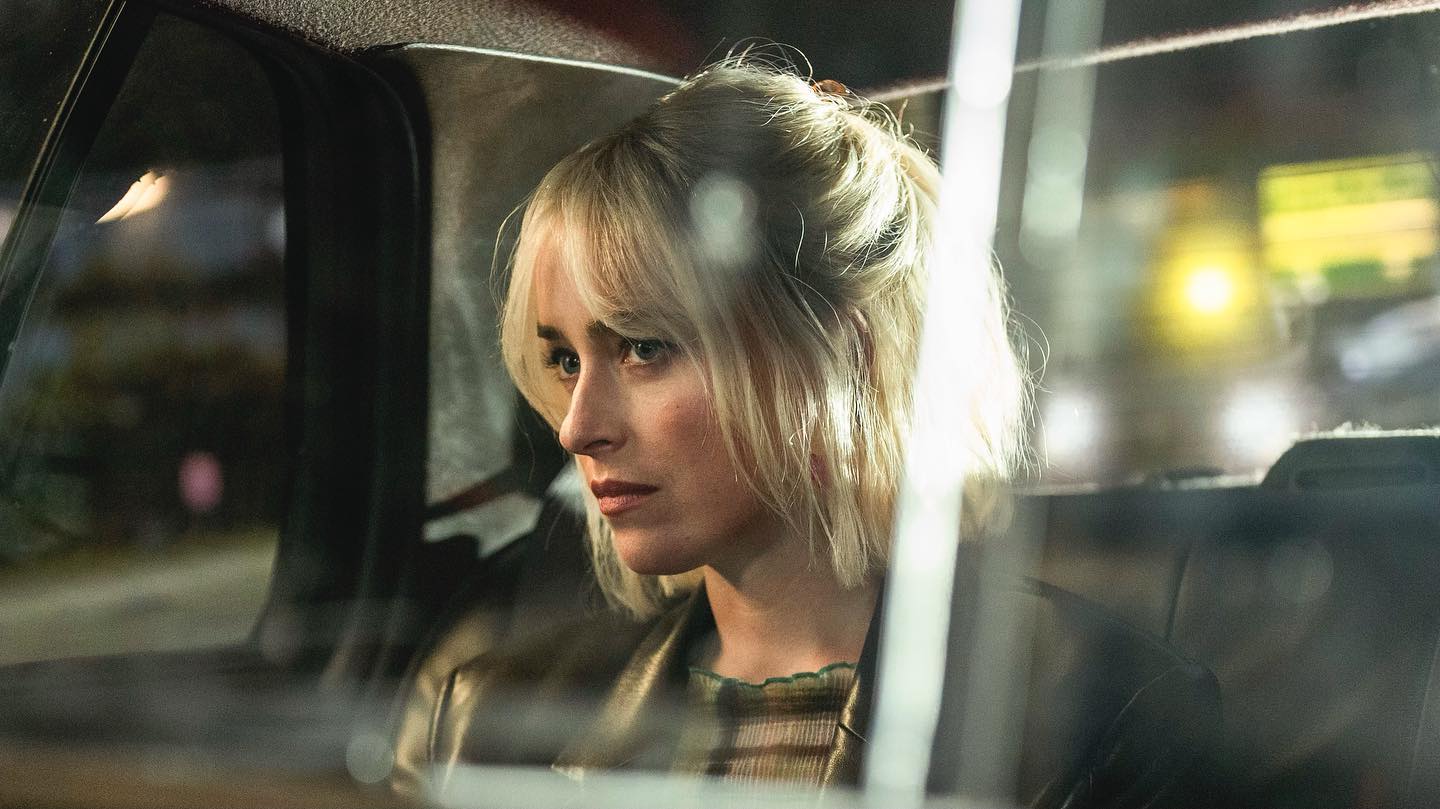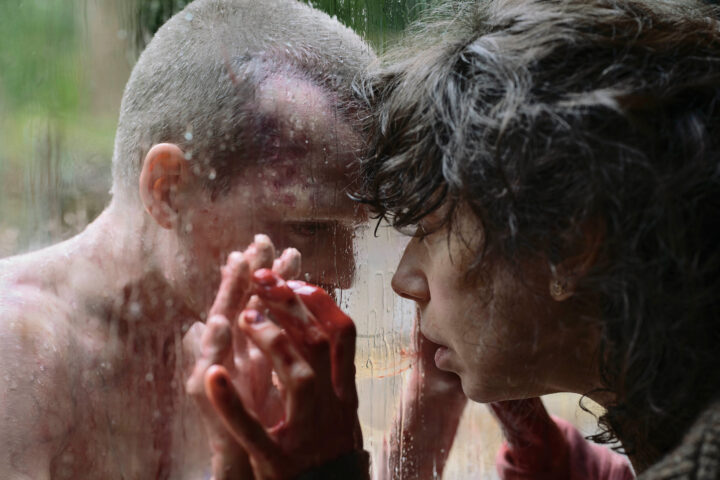A taxi driver and his passenger unexpectedly bond in writer-director Christy Hall’s Daddio, starring Sean Penn and Dakota Johnson on an extended trip from JFK to Midtown, one yielding plenty of talk and transformation. It’s a two-character “small” picture with a few bigger ideas on its mind, vitally dependent on its screenplay and performances for its 101 minute excursion. Are the characters engaging? Is their connection sustained? Yes and sometimes.
Good conversation in American movies today is a discarded art—long gone are the days of Robert Towne, David Mamet, John Sayles and Woody Allen crafting still quotable, all-timer screenplays, today replaced by dialogue-lite spectacles packaged for impatient audiences and global markets. Hall’s debut picture—a road movie which is all talk—calls to mind similar movie excursions, namely Louis Malle’s friendship confessional My Dinner with Andre, Michael Mann’s hit man hit Collateral and Steve Knight’s phone call marathon Locke, perhaps closest to Hall’s new picture in terms of its single-location vehicular containment. Such containment dictates a theatricality, sure, but if the talk is good, it reminds one that compelling movies are primarily about great writing and acting.
In her Daddio debut, Hall has crafted her version of the talkie, a slow burn ride beginning when a nameless professional played by Johnson (referred to as “Girlie” in the credits) hails a late night airport cab to her Manhattan apartment. Home in forty-five to an hour, right? Not exactly, in a picture that contrives construction and roadway accidents to accommodate a very talkative driver named Clark (Penn). To those of us that prefer quiet Uber rides, Clark feels a bit of a nightmare. But Johnson’s programming techie, returning from a Midwestern family visit, has her buttons pushed by the cabbie through casual small talk that becomes, in relentless psychoanalyzing, a sort of dark night of the soul, or two of them. The adage that one can confide in an anonymous airline passenger is what Hall is going for here, and we can predict at the outset that this unlikely connection will turn quite serious and that both participants will be changed by their chance connection.

Penn’s Clark almost immediately sizes up his passenger, who has an additional communication happening in the back seat, namely a sexting chat with what turns out to be a much older, married boyfriend, who never appears (except via the currency of his nude pics). To the young woman’s surprise, the cabbie sees her relationship dilemma with crystal clarity, that of a young plaything of a not serious power broker. She has daddy issues, clearly, and Clark, a wearied surveyor of human nature by vocation, finds it necessary to caustically enlighten her to her folly. But as the trip wears on, he also divulges his own broken life, including digressions into infidelities that ruined his marriages, passages during which Penn offers genuine poignancy (to us, as we are looking at his face, which his passenger cannot see). Gender differences in attitudes toward love and sex are thoroughly on order here, though none that revelatory.
Throughout, the intrigued young woman connects more with Penn’s driver than the distraction of her boyfriend, and part of her interest lies in Clark’s gradual opening. She has daddy issues and he has regrets, and they come to respect each other by the time the ride concludes. Clark has a deeply pessimistic world view but kind heart while his passenger’s denial will eventually give way to the reality of her romantic entanglement. There’s more, sure, including exchanges about her father, which seem more programmatic than revelatory. There’s a peeling back layers quality to Hall’s writing that almost gets there, but somehow doesn’t mine rich enough drama.
Nonetheless both actors do well with the material, selling it hard but with very different styles. Penn, as in this year’s Lower East Side ambulance drama Asphalt City, leans on a grizzled grit infused with a streak of compassion in a largely mannered and actorly turn; you can see the technique in every gesture but the actor delivers real heart. And Johnson, a natural finally gaining industry cred after her debut in the tawdry Fifty Shades of Grey series, is affecting. Like her recent work in The Lost Daughter, Cha Cha Real Smooth and Am I OK?, she offers a minimalist, nuanced portrait that is less acting and more effectively conveying complex feelings, initial confidence masking a touching emptiness. As an actress, Johnson is also a great listener, much of her fine work here etched in small, observant reactions to her driver’s ongoing monologues.
There’s a suspension of disbelief necessary to make a story like this work—in reality we wonder why the young woman would submit to such an analysis rather than keeping to herself, and believing her participation requires the same commitment we made when asking why young Nick and Honey didn’t bolt from a savage George and Martha in Edward Albee’s Who’s Afraid of Virginia Wolf? In Daddio, I suppose the logistics of getting out of a cab on the JFK Expressway are wholly infeasible.
Hall originally conceived of her film for the stage, and an air of artificiality permeates, not limited to the finite location but also the oddly arid sound design, disarmingly quiet and seeming to “drop out” the outside world. One wishes for the picture to come alive with noise polluting intrusions of New York urbanity—garbage trucks, ambulances and honking horns seem mostly absent. Much of the film was reportedly shot on a soundstage, inside an actual taxi surrounded by digital screens to accommodate crafty lensing work from cinematographer Phedon Papamichael, giving the inside of the vehicle endless reflections and glowing lights that filter through a handful of widescreen compositions defining the space.
Despite several potent exchanges, Daddio has a sense of contrived inflation to the talk and extended trip; such devices would be fine if the screenplay’s admissions were slightly more revelatory. By the time it reaches its concluding moment—in which both actors deliver a believable final exchange—we wish Hall had dug a bit deeper.
2 1/2 stars



